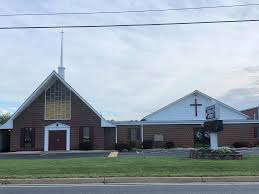5 Mistakes to Avoid When Applying for a Church Loan
Securing a loan for your church is a critical decision that can support expansion, renovations, or other vital projects. However, the process can be complex, and making the wrong moves can lead to serious financial complications or even derail your plans altogether. When applying for a church loan, it’s essential to avoid common mistakes that could affect the approval process or the church’s financial stability in the long term. Here are five mistakes to avoid when applying for a church loan.
1. Failing to Prepare Adequate Financial Documentation
One of the most common mistakes churches make when applying for a loan is not having the proper financial documentation ready. Lenders need to understand the financial health of your church to assess whether you can repay the loan. This means having clear and organized financial statements, including income statements, balance sheets, cash flow projections, and tax returns.
A lack of transparent and comprehensive financial documents can signal to the lender that your Church lenders is not financially stable, increasing the likelihood of loan rejection. Be sure to have your records in order and, if necessary, seek professional assistance to ensure everything is accurate and up-to-date. It’s also helpful to provide a detailed budget that outlines the intended use of the loan.
2. Overlooking Your Church’s Borrowing Capacity
Another mistake churches often make is failing to evaluate their true borrowing capacity. While a lender may be willing to approve a larger loan amount, it’s essential to assess whether your church can realistically manage the debt. Overextending your borrowing can strain church finances and limit your ability to fulfill the mission of the church.
Take a hard look at your congregation’s giving history, your overall revenue, and other financial obligations. Calculate what your church can afford in monthly payments without risking a financial burden that could affect other areas of your ministry. A loan that feels comfortable at first could turn into a financial crisis down the road if it’s too large relative to your income.
3. Ignoring the Terms and Conditions of the Loan
When applying for a church loan, it’s crucial to thoroughly review the loan’s terms and conditions. Churches sometimes make the mistake of focusing only on the loan amount and interest rate, neglecting to examine other critical aspects of the loan agreement. Hidden fees, prepayment penalties, or unfavorable repayment terms can lead to unexpected costs.
Make sure to read the fine print and fully understand the repayment schedule, interest rates, and any penalties that might arise. If any part of the loan agreement is unclear, don’t hesitate to ask the lender for clarification. Being informed about the loan’s terms can help you avoid financial surprises and protect the long-term health of your church.
4. Not Considering Alternative Financing Options
Relying solely on traditional loans may not always be the best option for your church. Many churches overlook other financing alternatives that could offer more favorable terms or a better fit for their specific needs. For instance, some lenders offer specialized loans for nonprofit or religious organizations with terms designed to be more accommodating.
Consider researching all available financing options, including lines of credit, government grants, or donor-funded loans. These alternative options might provide more flexibility or lower interest rates compared to traditional loans. Don’t limit yourself to one type of financing without fully exploring all potential avenues.
5. Not Seeking Professional Guidance
Navigating the loan application process can be daunting, especially for churches that have limited financial expertise. Many churches make the mistake of trying to handle the loan application on their own, without consulting financial professionals who can guide them through the complexities of securing a loan.
It’s wise to seek the counsel of a financial advisor or accountant who specializes in nonprofit or church finances. A professional can help you understand your church’s financial situation, assist in preparing the necessary documentation, and provide advice on the best financing options. Consulting with an expert can improve your chances of loan approval and ensure you make the best financial decisions for your church.
In conclusion, applying for a church loan requires careful planning and attention to detail. By avoiding these five common mistakes—failing to prepare adequate financial documentation, overlooking your borrowing capacity, ignoring the loan’s terms and conditions, not considering alternative financing options, and neglecting professional guidance—you can significantly increase your chances of securing a loan that will benefit your church and support its future growth. Taking the time to avoid these pitfalls will ensure that your church’s financial decisions remain aligned with its mission and long-term goals
